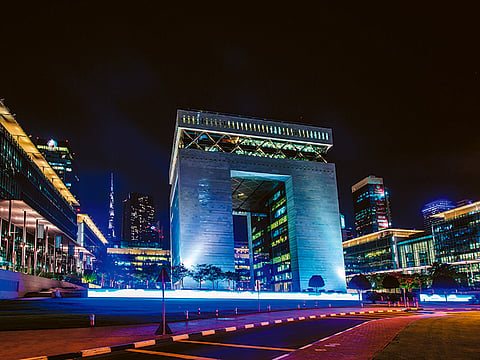Banking on privilege in the UAE
The priority banking segment is bucking the wider market trends and providing financial institutions with some much-needed growth

At a time of low interest rates and declining economic growth, the banking sector is having to adjust to tough times. But there is at least one part of the market where things look rather bright. According to global consultancy firm Strategy&, there are about 330,000 households in the UAE with between $200,000 (Dh734,509) and $1 million in investible assets.
Together they control about $145 billion of wealth. It’s a lot of money and a lot of potential customers for banks to chase after and the numbers are growing all the time. These affluent households are the fastest-growing wealth segment in the Gulf and nowhere more so than in the UAE.
In 2010, there were about 145,000 of them in the country, a number which has more than doubled since then. The growth rate is running at 22 per cent a year in the UAE, which is the fastest rate for any GCC country.
These affluent households are the sweet spot for what is known as priority banking — a group of people who are not rich enough for full-on private banking but have enough spare money to want more than just a basic bank account. The combination of wealth and a demand for services makes it a lucrative market. “The priority banking opportunity in the Gulf is enormous, with the affluent segment growing at a rapid pace,” says Ishrat Maqsood Kiyani, Head of Mashreq Gold, the priority banking division of Mashreq. “Priority customers are typically high-value customers who are in need of multiple banking services, such as wealth creation, wealth protection, borrowing and leverage requirements and personal protection requirements.”
Catch them early
Although the market opportunity is clear, banks have not always found it easy to get it right. Strategy& says this segment is often demanding and price-sensitive. Customers also tend to be unsophisticated investors, who require plenty of advice and explanation. But if the banks can put together an attractive offering, then there are plenty of potential gains. “These people are rich but not super rich,” says Daniel Diemers, a partner at Strategy&. @There’s a great opportunity for local banks in particular because they have the branches and you need to be close to these customers to cater to them.”
When the profit margins on regular retail banking products are rather thin, due to low interest rates, the potential to sell a broader range of more profitable investment products to a wealthy clientele is an attractive one for banks. Such customers are eight times more profitable than any other segment. Unsurprisingly, it is also competitive and attracting customers is not always easy. Building a relationship with them at an early stage is important, which is why some banks will waive their usual entry requirements if they think a customer is likely to fit their target profile in the future.
“Mashreq’s typical priority banking client is anyone with more than Dh375,000 in liquid assets,” says Kiyani. “The bank is liberal in its definition of a priority banking customer. For example if someone has a mortgage of Dh2.5 million and above, or has a monthly income greater than Dh50,000, they are considered priority customers. Referral programmes can also be important. Some financial institutions offer rewards to customers if they recommend them to colleagues."
Perks and benefits
On top of that, banks like to dangle all sorts of financial and lifestyle benefits in front of their customers, ranging from preferential interest rates to access to exclusive events and other perks. Emirates Islamic Bank allows account holders to invest in its Mudaraba Pool, an investment vehicle also open to its shareholders.
Different services will suit different people, but from a customer’s perspective, it can be difficult to distinguish between the offerings. Some customers may feel that local banks have a better understanding of them and that they have more branches on the ground, but international banks can offer access to a wider range of services including offshore accounts and entry to priority banking facilities in other parts of the world.
The latter element is important for customers from other parts of the world who are living in Dubai and Abu Dhabi. Standard Chartered made an explicit play for some of these people late last year when it launched a package of priority banking services aimed at non-resident Indian and Pakistani expatriates in the UAE.
Customers get a single relationship manager for both the UAE and their home country and no charges on transfers of money between their Standard Chartered accounts in the two markets. “It is designed to cater to their varied financial needs and in providing comprehensive financial solutions in the UAE and back home seamlessly,” said Mohsin Nathani, then CEO of Standard Chartered UAE, at the time.
Despite all the tailored services and perks on offer though, it is still the basics that matter most. The reality is banks don’t attract many clients on the basis of the benefits they offer, instead it comes down to how well they look after their clients’ money and the quality of the advice they give. In that at least, priority banking is no different from any other part of the industry.



